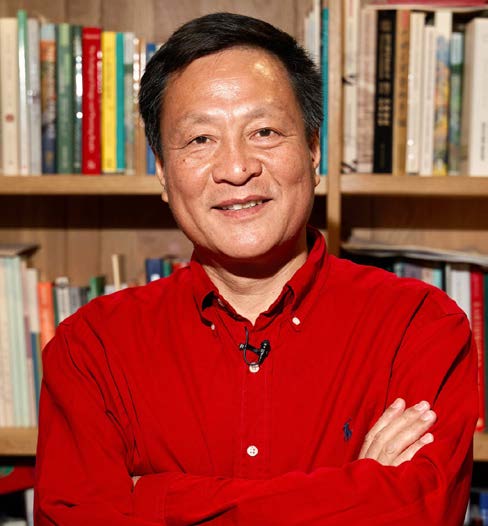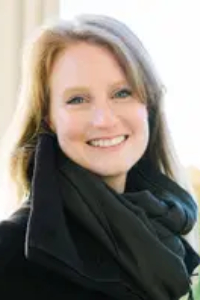- Home
- About
- Leadership & Administration
- Chancellor's Lecture Series
Menu
- Leadership & Administration
- About Chancellor Marcelo Suárez-Orozco
- Chancellor's Cabinet Members
- Senior Leadership Team
- Chancellor's Staff
- Chancellor Event Request
- Chancellor Meeting Request
- Chancellor's Reports
- Campus Plans
- Faisal-Nichols Honorary Scholarship
- Strategic Plan
- Beacon Budget Model
- Chancellor's Lecture Series
- Beacon Wellness Initiative
- Restorative Justice Commission
- Student Success
- Mission
- Facts & Figures
- Accreditation & Rankings
- History of UMass Boston
- Student Consumer Information
From Climate Crisis to Climate Resilience
“Sponge Cities: The Future of Sustainable Urban Design"
With Kongjian Yu
Can transforming cities into sponges make us more resilient?

Join us Wednesday, October 23 for the third forum in the Chancellor’s Lecture Series as renowned landscape architect and urbanist Kongjian Yu, professor and founding dean of Peking University College of Architecture and Landscape and founder and design principal of Turenscape, presents his globally recognized “sponge city” concept.
From Climate Crisis to Climate Resilience
“Sponge Cities: The Future of Sustainable Urban Design"
Wednesday, October 23, 2024
Campus Center Ballroom, UMass Boston
3-4:15 p.m.

Lecture will be followed by a fireside chat with Chancellor
Marcelo Suárez-Orozco and School for the Environment Dean Carol Thornber
Moderated by Carolyn Beeler, Co-Host of The World from GBH and PRX
If you are unable to attend the event in person, you are welcome to join via YouTube.
Past Lectures
Impacts of Climate Change on Global Public Health
“Impacts of Climate Change on Global Public Health”
Wednesday, April 3, 2024
Campus Center Ballroom, UMass Boston
Lecture and Discussion, 11 a.m.-1 p.m.
“Bending the Curve and Bouncing Back to Climate Resilience”
by
Dr. Ram Ramanathan
Distinguished Professor Emeritus of Climate Sustainability at Scripps Institution of Oceanography
&
Climate Solutions Scholar, Cornell University
November 9, 2023
Campus Center, Campus Ballroom, University of Massachusetts Boston
Reception, 2:30–2:45 p.m.
Lecture and Discussion, 2:45–4:30 p.m.
Chancellor's Lecture Series Program
Climate change morphed into climate crisis this year, giving us a peek into a world that is warmer by 1.5°C. The rise in temperature will cross the 1.5°C threshold by the early 2030s and will most likely get worse for at least another few decades, even assuming the most optimistic solutions for bending the emissions curve.
A new trans-disciplinary approach is needed to make people and ecosystems resilient to climate stress. The new approach, developed in partnership with the Vatican's science academies, is built on three pillars: mitigation, adaptation, and societal transformation. The approach will be field- tested in partnership with mayors and governors from around the world, who will be convened at the Vatican in a summit. Chancellor Marcelo Suárez-Orozco and Dr. Ramanathan are co-leading this effort on behalf of the Vatican science academies.
Climate change is upon us already. Left unchecked, it will become the existential challenge of our times. The planet is likely to cross the dangerous threshold of 1.5C warming in less than a decade – when climate change will move into our living rooms like COVID. Going from climate crisis to climate resiliency in ten years will require an approach that will include both intergovernmental collaborations (to bend the emissions curve) and transdisciplinary collaborations (starting at the local city level) to enable citizens and ecosystems to become climate resilient. In this lecture, Professor Ramanathan will share a framework for such an approach to this existential challenge.
